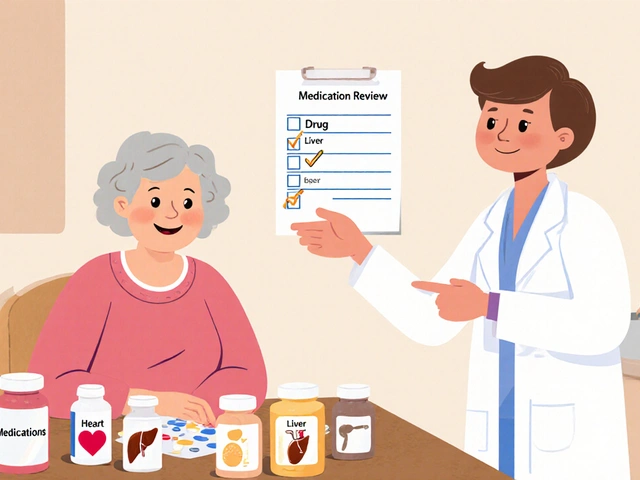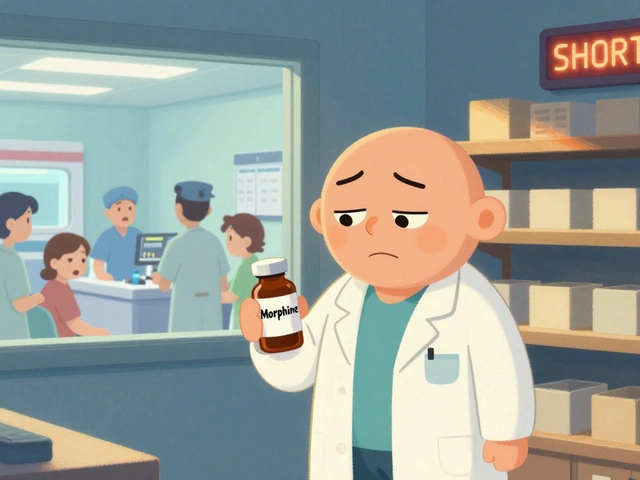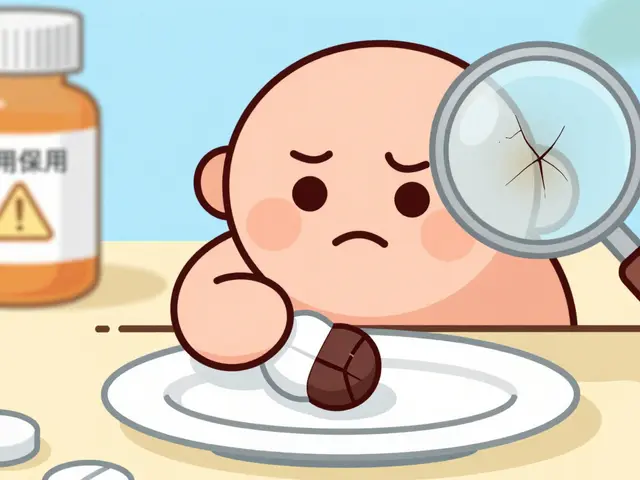Herpes is a common condition affecting millions around the world, yet it remains shrouded in stigma and misconceptions. This silence can lead to feelings of isolation and shame for those diagnosed.
But what if sharing your story could change that? Storytelling has the potential to connect, heal, and educate. When individuals affected by herpes share their experiences, they not only help themselves but also provide comfort and insight to others in similar situations.
By opening up about your journey, you can break the stigma, foster a sense of community, and support others who may feel alone. This article explores the impact of storytelling on herpes awareness and offers practical tips for those willing to share their stories.
- Understanding Herpes and Its Impact
- The Power of Personal Narratives
- Breaking the Stigma
- Building a Supportive Community
- Tips for Sharing Your Story
Understanding Herpes and Its Impact
Herpes is caused by two types of viruses, Herpes Simplex Virus type 1 (HSV-1) and type 2 (HSV-2). HSV-1 commonly leads to oral herpes, manifesting as cold sores around the mouth, while HSV-2 often results in genital herpes. Due to the high prevalence of the virus, the World Health Organization estimates that around two-thirds of the global population under 50 carries HSV-1, and one in six people aged 14 to 49 have genital HSV-2. These statistics highlight the sheer commonality of the virus, yet the stigma surrounding it persists.
The symptoms of herpes can range from mild to severe. Some experience painful sores and blisters, while others may not even know they're infected. The first outbreak is usually the most intense, with subsequent recurrences being less severe. Beyond physical symptoms, the diagnosis can take a heavy toll on one's mental and emotional well-being. Many feel ashamed and anxious, worried about the social implications and how it may affect their relationships.
One of the main challenges with herpes is the absence of a cure. Antiviral medications can help manage outbreaks and reduce the risk of transmission, but the virus remains in the body indefinitely. This reality can be daunting, yet understanding how to live with and manage herpes can significantly improve one's quality of life. Knowledge empowers, and the more you know about the virus, the better equipped you are to handle it.
Despite its prevalence, herpes is still surrounded by misinformation. It's essential to debunk myths, such as the belief that it can only be transmitted through sexual contact. HSV-1, for example, can spread through non-sexual means like kissing or sharing utensils. This misinformation contributes to the stigma, which can feel heavier than the physical symptoms themselves.
"The stigma surrounding herpes is often worse than the condition itself," says Dr. Christine Johnston from the University of Washington. "When people are diagnosed, they're not just dealing with blisters; they're confronting a society that judges them unfairly."
Understanding the virus also includes knowing its impact on different demographics. For instance, women are more likely to be diagnosed with genital herpes than men, primarily due to the anatomy making it easier for the virus to be transmitted. The implications can differ culturally too, as some societies impose a heavier stigma, impacting individuals' willingness to seek treatment or disclose their condition.
The psychological impacts can be severe. Feelings of isolation, anxiety, and depression are common. Access to mental health resources is crucial for those diagnosed, yet many refrain from seeking help due to the stigma. Peer support groups, both online and face-to-face, can provide much-needed emotional support, showing that they are not alone in their struggles.
Herpes education and awareness can significantly reduce the stigma and improve the quality of life for those affected. By sharing accurate information and encouraging open conversations, the silence surrounding herpes can be broken, making way for a more understanding and supportive society.
The Power of Personal Narratives
Personal stories hold immense power, especially when it comes to health challenges like herpes. Sharing your journey is not just about telling what happened; it’s about conveying emotions, lessons learned, and the impact on your life. These narratives can resonate deeply with others who are navigating similar paths, providing validation and encouragement.
Accurate facts are essential when discussing herpes. According to the World Health Organization, over two-thirds of the global population under 50 has herpes simplex virus type 1 (HSV-1). Such statistics are sobering, but when these numbers are complemented by personal experiences, they come to life. People begin to see herpes not just as a medical condition but as part of the human experience.
"Stories help us understand, not only the issues we're facing, but they also humanize the data," explains Dr. Anne Smith, a healthcare communication expert.
Another compelling aspect of personal narratives is their ability to break down complex emotions and societal stigmas. When you share your story, you're chipping away at the shame and secrecy that often surrounds herpes. This openness can lead to healthier conversations and a redefined perception of the condition. The courage you show in sharing can inspire others to come forward, creating a ripple effect of support and understanding.
Sharing stories can also foster a sense of community. Imagine a person recently diagnosed with herpes feeling overwhelmed and isolated. Reading or hearing someone else's story can offer them hope and practical advice. It tells them they are not alone and that life can continue to be fulfilling. This sense of belonging can significantly improve mental health and overall well-being.
The empowerment that comes from sharing your journey can't be understated. Each time you voice your experience, you reclaim a part of your identity that might have felt lost. You become part of a broader dialogue that challenges misconceptions and promotes empathy. This, in turn, can make living with herpes less daunting and more manageable.
On a more practical level, storytelling can be an educational tool. For example, explaining how you manage outbreaks or navigate romantic relationships can offer invaluable insights to others. People often turn to personal stories for tips and advice that they might not find in clinical guidelines. Your narrative can serve as a real-world guide, filled with personal touches and lived wisdom.
Ultimately, personal narratives serve as bridges between isolation and community. They offer a way for individuals to connect on a deeper level, beyond the surface of their diagnosis. By sharing your story, you become a beacon for others, illuminating the path to acceptance and healing.

Breaking the Stigma
Stigma around herpes persists because of a lack of accurate information and widespread myths. Many people mistakenly believe herpes is uncommon or a sign of promiscuity, leading to judgment and alienation. The reality, however, is that herpes is extraordinarily common. The World Health Organization reports that approximately 67% of the global population under 50 has HSV-1, and around 11% have HSV-2. These numbers illustrate that herpes affects a vast cross-section of society, from all walks of life.
Breaking the stigma starts with educating oneself and others about the facts. For example, herpes is primarily spread through skin-to-skin contact and can remain dormant for long periods. It is not solely transmitted through sexual activity, which dispels the myth that it is just a sexually transmitted infection (STI). This misinformation contributes to unnecessary shame and embarrassment.
Personal narratives play a pivotal role in stigma-breaking. When people affected by herpes share their stories, they humanize the condition. They show that a herpes diagnosis does not define them or their value. Through storytelling, they illustrate resilience, normalcy, and strength. Holly Ann, a health advocate, shares, “My journey with herpes became less about the virus and more about how I chose to live my life. Openness allowed me to reclaim my sense of self.”
Communicating openly about the condition also dismantles the notion that herpes is rare or morally compromising. As more individuals speak out, it becomes clear that this virus is just one part of the human experience, not an indication of someone’s character or morality. This open dialogue helps to foster a more supportive environment where individuals feel less isolated and more understood.
Communities, both online and offline, provide spaces where people can share their experiences without fear of judgment. These platforms facilitate the sharing of stories, leading to empowerment and solidarity among members. Connecting with others who understand the emotional and physical aspects of living with herpes can be incredibly comforting. It validates feelings and provides practical advice for managing the condition.
The media also has a role to play in breaking the stigma. Balanced and accurate representations of herpes in articles, television shows, and films contribute to a more informed audience. When depicted appropriately, these portrayals can challenge existing stereotypes and prevent the spread of fear and misinformation.
Ultimately, education and storytelling are interconnected tools in the fight against herpes stigma. The more informed and vocal we are, the more we can shift perceptions and encourage compassionate understanding.
Building a Supportive Community
Creating a strong, supportive community is essential for anyone dealing with herpes. This condition, despite being very common, often carries a heavy stigma that can lead to feelings of isolation and shame. However, by building a network of understanding individuals, those affected can find comfort and encouragement.
One of the first steps in creating a supportive community is finding a safe space to share experiences. Online forums and social media groups dedicated to herpes support can be incredibly beneficial. These platforms provide an environment where individuals can ask questions, share stories, and connect with others who understand what they are going through. Some popular online communities include Reddit's r/Herpes and the American Sexual Health Association's support forums.
It's essential to foster an atmosphere of empathy and non-judgment within these communities. Sharing personal experiences can be daunting, but knowing that others have gone through similar situations can be incredibly reassuring. According to a study by the Journal of Social and Personal Relationships, people who share their health concerns within supportive settings often experience reduced stress and increased well-being.
"When individuals feel supported, they're more likely to cope effectively with their condition and lead fulfilling lives," said Dr. Emily Roberts, a psychologist who specializes in chronic illness support.
Local support groups also play a crucial role in community building. Meeting others face-to-face can significantly impact one's emotional health. The Herpes Resource Center often organizes meetings where people can learn more about managing the condition and connect with others in a safe, supportive environment.
Education is a powerful tool for dismantling the stigma surrounding herpes. Providing accurate information about the condition, such as its prevalence and ways of transmission, helps combat misconceptions. For instance, the World Health Organization estimates that around 67% of the global population under 50 has HSV-1, highlighting the importance of normalizing discussions about herpes.
Another effective way to build a supportive community is through storytelling. When people share their journeys, they not only help themselves but also offer insight and comfort to others. Personal narratives can be transformative, encouraging others to open up and fostering a collective sense of resilience. This can be especially powerful when shared in public forums or through blogs and social media accounts.
Finally, mental health professionals can be invaluable allies in community building. Therapists and counselors who understand the emotional impact of herpes can provide essential support and coping strategies. Encouraging others to seek professional help can be a vital step in creating a supportive, well-rounded community.
By combining these efforts—providing safe spaces, fostering empathetic dialogue, educating the public, sharing stories, and seeking professional support—we can build a robust, supportive community that helps those affected by herpes feel seen, heard, and supported.

Tips for Sharing Your Story
Sharing your personal experience with herpes can be a powerful way to foster understanding and offer support to others. Here are some tips to help you navigate this journey:
Find Your Motivation
Understanding why you want to share your story is crucial. Are you looking to educate others, reduce the stigma associated with herpes, or simply seeking a therapeutic release for yourself? Your motivation will guide how you present your story and help you stay focused on your goals. Remember, your reasons are valid, and your story has the power to reach and help others.
Be Honest and Open
When sharing your experience, honesty is key. Providing an accurate account of your journey can help break the myths and misinformation surrounding herpes. Discuss how you felt upon diagnosis, the challenges you've faced, and how you've managed your condition. Your candidness can create a relatable and impactful narrative that resonates with others.
"The simple act of listening to someone's story can make a world of difference. Honesty and vulnerability help build connections and foster empathy," says Brené Brown, a research professor and author.
Consider Your Audience
Think about who will be reading or listening to your story. Tailoring your message to your audience can make it more engaging and effective. For example, if you're sharing in a public forum, you might want to include educational content about herpes to inform those who are less familiar with the condition. If you're speaking to a support group, focusing on emotional experiences and coping strategies might be more appropriate.
Protect Your Privacy
While being open is important, it's equally vital to protect your privacy. Decide which parts of your story you're comfortable sharing and which details you'd prefer to keep private. Using pseudonyms or anonymizing certain aspects of your story can help you maintain boundaries while still making your point. Remember, you have control over your narrative.
Seek Support
Sharing something personal and sensitive can be challenging. Consider seeking support from trusted friends, family, or mental health professionals as you prepare to share your story. They can provide valuable feedback and emotional support. Additionally, joining online communities or support groups can connect you with others who have shared similar experiences, providing a sense of camaraderie and mutual understanding.
Practice Self-Care
Revisiting and sharing personal experiences can evoke strong emotions. Make sure to practice self-care throughout this process. Whether it's taking breaks, engaging in relaxing activities, or seeking professional help, taking care of your mental and emotional well-being is crucial. Sharing your story is an act of courage, and it's important to prioritize your health and wellbeing.
Use Empowering Language
Language is powerful. Using empowering and positive language when talking about your experience can change how others perceive herpes and, more importantly, how you perceive yourself. Avoid terms that carry negative connotations and instead focus on resilience, growth, and empowerment. Your choice of words can help shift the narrative from one of shame to one of strength.
Create a Safe Space
When sharing your story in person or online, aim to create a safe and respectful environment. Encourage questions and discussions, but also set boundaries to ensure the conversation remains supportive and constructive. This approach not only helps others feel comfortable but also ensures that your experience is shared and received in a positive light.
By following these tips, you can share your story in a way that is both empowering for you and beneficial for others. Your voice is instrumental in spreading awareness about herpes, breaking down stigma, and fostering a more empathetic and informed world.







Comments(6)